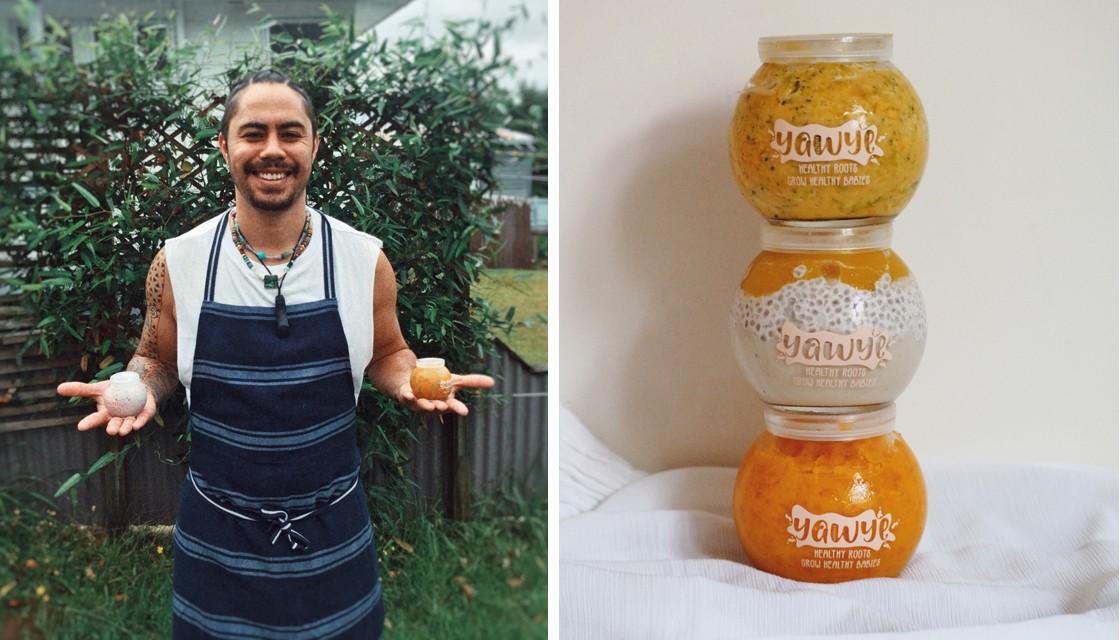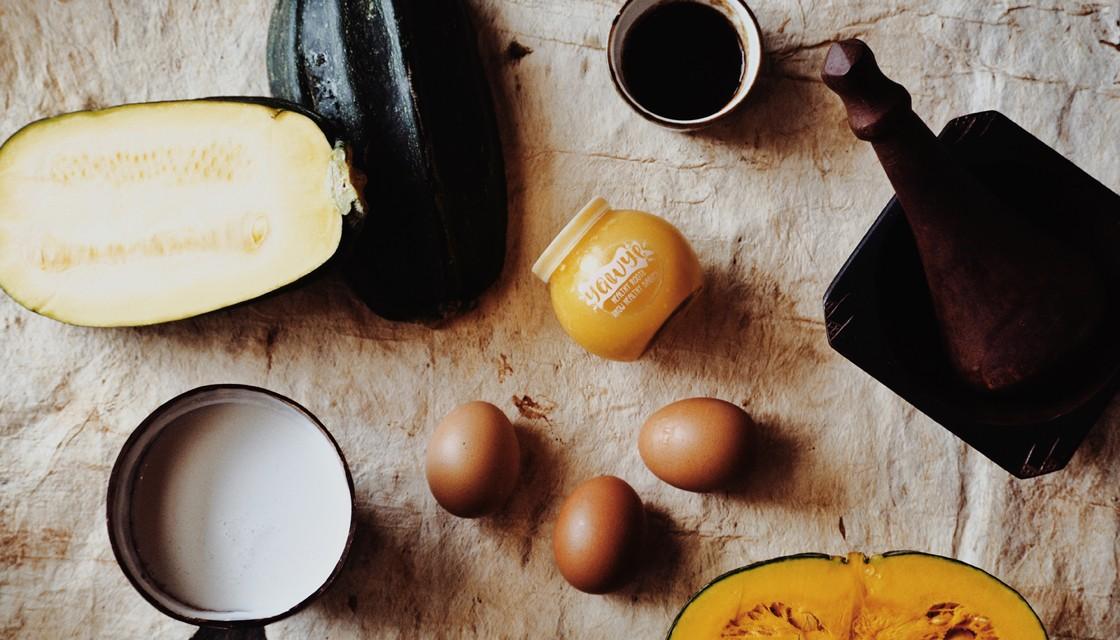
In any supermarket or health food store you'll see rows upon rows of brightly coloured baby food, usually containing all the usual suspects: Apple, berry, banana, often with a vanilla custard or two thrown in for good measure.
These can often be full of preservatives, added sugars and other hidden nasties and might not be ideal for nourishing growing bodies.
But one new local baby food producer is trying to do things a cut above the rest by using all local, healthy and indigenous ingredients.
'Yawye' - which stands for 'you are what you eat' - is a company supplying Kiwis custom indigenous meal plans tailored for different aged babies, from purees for infants, 'mashables' for nine months and above, and 'chunkies' - chunkier meals with small food pieces for toddlers.

It's run by business partners Ani Lomas and Tausani Simei-Barton who say their focus is on protecting the wellbeing and nutrition of the country's tamariki.
"Most baby food is fruit-based, ours is root based," Tausani told Newshub.
"All made with ingenious ingredients like potato, kumara, taro - it's the point of difference.
"[Our products are] 100 percent dairy-free and gluten-free which is our main focus. When the products are that good you just leave them alone."
As customers, parents would select a food plan - either a weekly meal kit, 'kete sampler' or trio box - then choose the range of flavours to suit their bubs.
From there the chefs get to work making them fresh and they are delivered around Tāmaki Makaurau, although the pair says they have plans to expand around Aotearoa in the future.

For Tausani, inspiration for the initiative hit him like a lightbulb while working in the Cook Islands.
"I was walking through a graveyard, and as I was walking down the rows beginning to end I noticed the ages getting less and less," he explained,
"At one end of the row there were ages of 100 years old plus, as I walked down the rows the ages became more like 30 years old, 40 years old.
"When I looked back at the gravesite, back behind the graveyard by where the ancient ones were was a plantation of vegetables.
"In the front of the graveyard was a line of takeaway shops."
Tausani said it was "a visual click".
"I knew then to reclaim our health we had to back to health go back to the old way of eating... start that movement," he said.
"That's why we stuck to the name: You are what you eat."
Despite the roots steeped in history, the pair know the food might be considered unorthodox to a modern parent.
"Even among Polynesians and Māori we'd tell them what we were doing and they'd be like 'babies can eat taro?'" Tausani laughed.
"It hasn't been done. A lot of people didn't even know it was healthy. So we want to bring in that point of education."

Ani told Newshub they're working with local high school Massey High to get students developing flavours for the baby food range, and will soon work on some education around production and marketing.
"We want to tap into the community and government education going forward," she said
For parents new to the process, they can mix and match flavours to see which bub likes best. The sample box is a great way to trial different flavours before ordering a recurring meal plan.
"One thing I really wanted is that if at any point you wants to stop [the recurring order] you can just push stop, no questions asked. I think people often think with a weekly plan they get locked in and I really didn't want that," Tausani explained.
There's also a recycling plan: Customers are encouraged to return used jars to protect Papatuanuku (the earth).
On the Yawye site, they promise to take "the hassle out of baby food".
"No longer do busy whanau need to worry about preparing fresh kai, cleaning up and disposing of the waste. We take care of it all."


